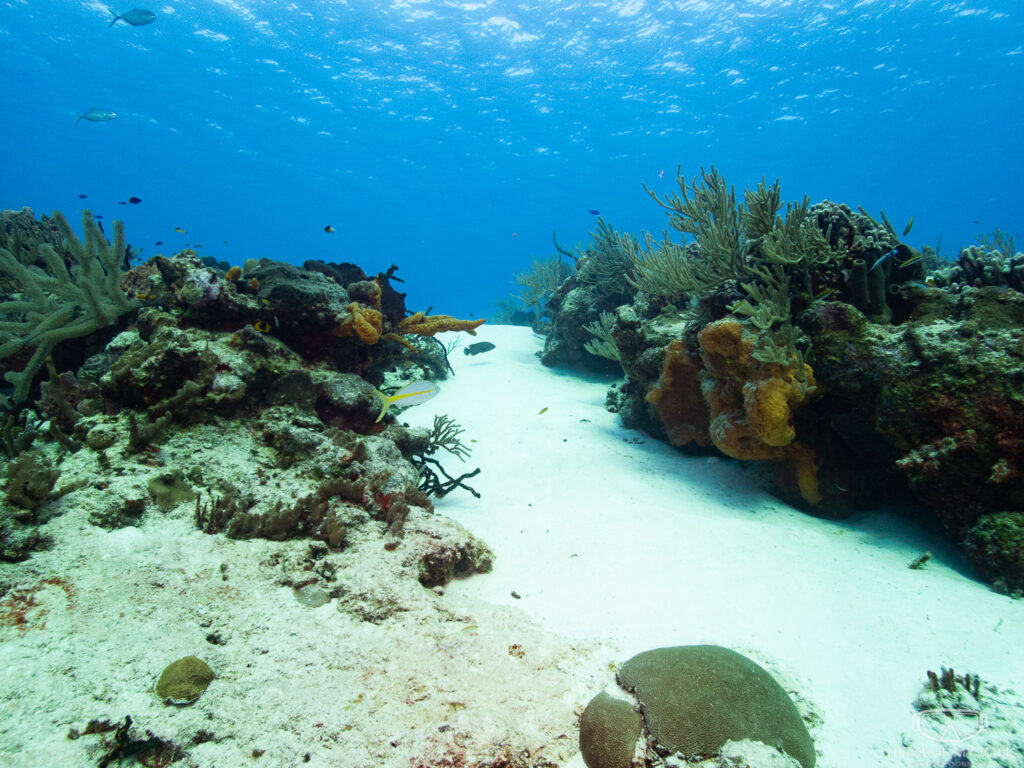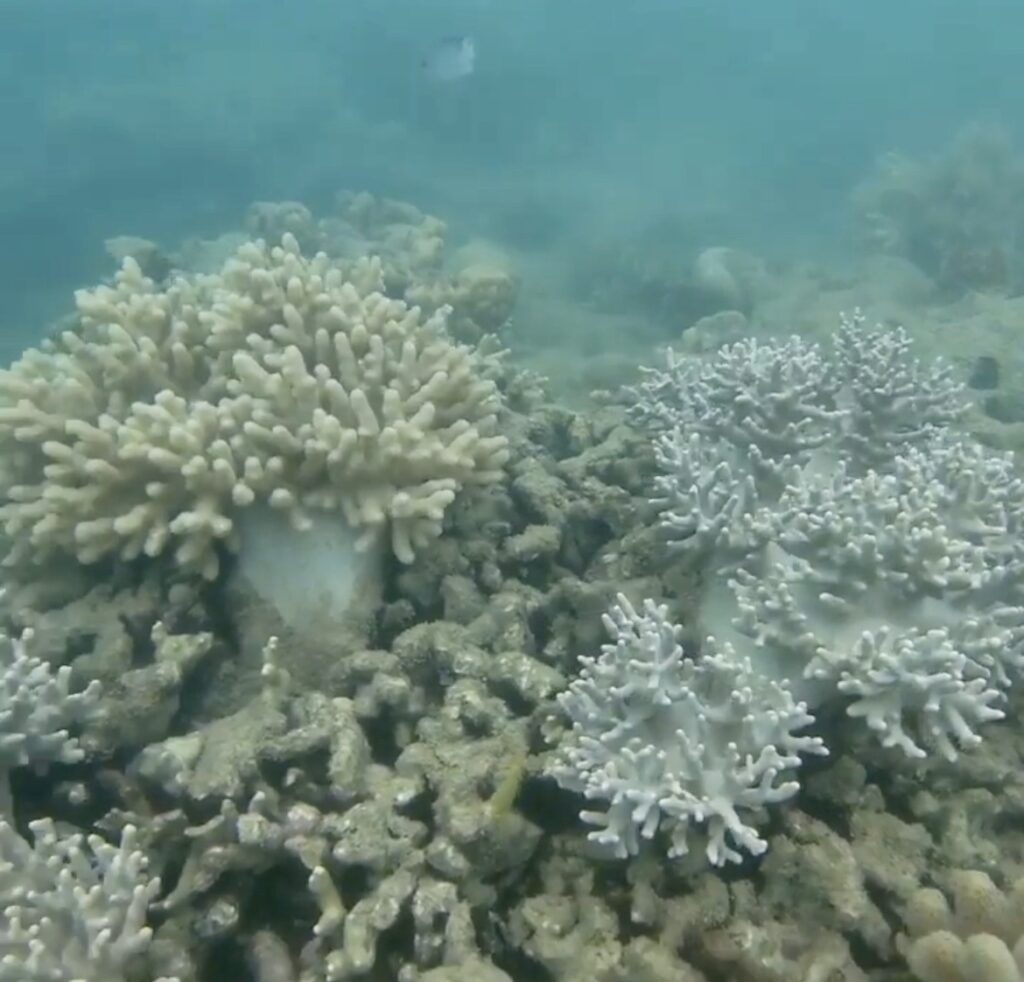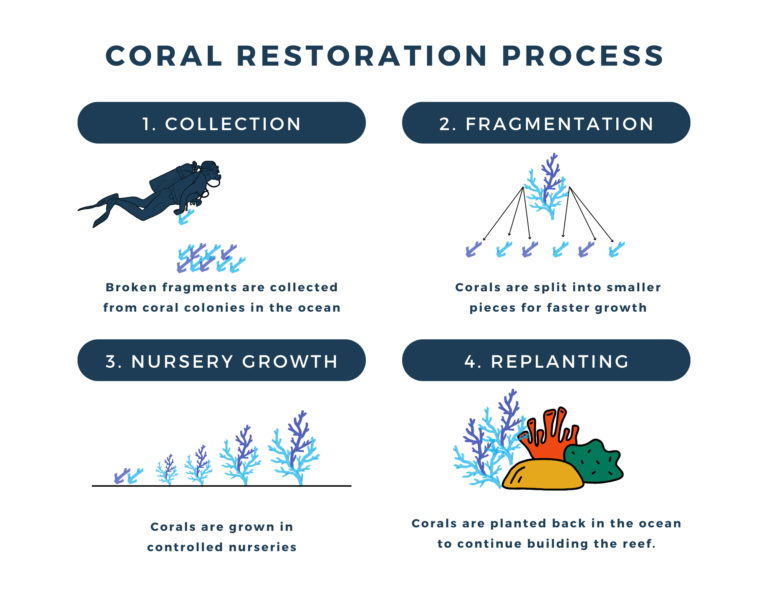The Importance of Coral Reefs
Coral reefs are the most biodiverse ecosystems in the world. They provide habitats for 25% of marine life, despite covering just 1% of the ocean floor. Coral reefs are also one of the most important ecosystems in the world. These beautiful underwater cities support more than 1 billion people with food security, livelihoods, and coastal protection.
These fragile ecosystems play a significant role in our lives everyday. From the air we breath to the food we eat, humans are dependent on a thriving ocean.
Here are just a few ways the ocean impacts your life:
Climate Regulation: Coral reefs fight climate change by absorbing carbon dioxide from the atmosphere and storing it in their calcium carbonate structures.

Oxygen Production: The ocean produces 50% – 80% of the oxygen we breath every day. Without a healthy ocean, we could not survive.
Biodiversity Support: Coral reefs support 4,000+ species of fish, 800+ species of hard coral, and thousands of other species such as octopus, crabs, and shrimp. This biodiversity is the foundation of our seafood system.
Global Food Chain Support: Coral reefs provide vital habitats for a large portion of the seafood we consume by providing places for small marine life to grow and support the food we eat.
Medicine Potential: Coral reefs hold the potential for revolutionary new medicine and scientists are just starting this research.
Coastline Protection: Coral reefs protect shorelines from tropical storms by breaking up waves offshore, reducing the intensity of the waves before they hit land.
Coral Reefs Under Threat

Coral reefs are experiencing widespread degradation and decline due to a combination of natural stressors and human activities. Warmer waters driven by climate change cause corals to bleach, effectively killing them. Water pollution smothers corals and introduces harmful chemicals to this fragile ecosystem. Finally, the ocean absorbs carbon dioxide. As more carbon dioxide is released into the atmosphere, the ocean absorbs more of it. This inhibits coral’s ability to grow. These threats have an immense impact on the ocean’s health, and in turn, ours.
The Facts
- 75% of the world’s coral reefs experienced bleaching levels of heat stress between 2014 and 2017.
- In 2022, 91% of the reefs surveyed on the Great Barrier Reef were affected by coral bleaching.
- By 2050, 90% of coral reefs are projected to experience annual bleaching due to warmer water temperatures.
Combat Plan: Coral Restoration

